Sephardim - Tumblr Posts
judío por elección (part 2)
(part 1.)
My wife and I started searching for a community after a lot of talking. But, technically, we were already looking.
After E died, S gave us charge over a specific set of books. He had told her that it was vital these books go to a synagogue. He preferred it to be a London synagogue. We had no clue which one.
Shoved in with all the different books he had, and we inherited, was ephemera from different synagogues--pamphlets from the 1980s and 1990s, booklets from the '40s and '50s. We started calling and emailing them about these books, because they were pretty important.
They're chumash with a publication date of 1898.
Problem was, we couldn't get any synagogues to respond. The one who finally did said that they had too many books and could not accept any more. They suggested that E might still be honored if the chumash went to a Spanish synagogue.
The community here, as you can imagine, is struggling. Spain has done a real good job at keeping Jews out since the expulsion of 1492. Most groups operate in half-secret: no website, or a website that hasn't been updated in years; no phone numbers. Half of the people we tried to contact never responded. Most of the rest couldn't support our conversion.
One rabbi from Madrid answered us. She made it clear that we'd have to move if we wanted to attend her group. This was expected and crushing. We're poor, disabled, and pretty well stuck where we are. But then she said that there was a brand-new community in a city closer to us, one we visit with some frequency. She introduced us to their leader.
I have the impression that A would be considered a cantor. He is not a rabbi, but he can lead services. He had a few questions about my wife and I's histories and experiences with Judaism. (Those experiences I'll talk about somewhat, but it's difficult to talk about meaningfully while also maintaining privacy, so it'll have to wait.) He wanted to know if and what we were reading. Then he invited us to Shabbat, which they conduct through videocalls.
This group does not have a rabbi, much less a synagogue. Several of the folks who call in for our Shabbat meeting live in a different city entirely. That person talks about experiences with Mossad. I want to get better at Spanish so that I can learn from her.
There's singing (as someone who's seen Ashkenazi services, the Sephardi tradition sounds amazing), of course, and because there's so few of us, A has my wife and I read sometimes for services. The very first thing I got to read was Psalm 23, which has always been one of my favorite works of art... which A couldn't know when he asked me to read it.
I said I'd stumble at lot. He told me to read it slowly in Spanish, that it's better to read slow and correctly than quickly and clumsily. He seemed pleased with my effort.
I was raised Mormon, and the entire approach to worship was very different, in a way I found appealing. My wife said it wasn't that different for them--they were raised mainstream Protestant, so singing and standing/sitting a lot were normal for them.
When we were asked to raise a glass of alcohol, we asked if it had to be wine. (We're bad Spaniards. Neither of us likes the stuff.) A said that as long as it was fermented, it was fine. One attendant had a gin and tonic.
The last time we celebrated Shabbat, we used gay-pride themed glasses and filled them with beer. "¿Qué tenéis?" we were asked.
"¡Cerveza!", which cracked them all up, and the ex-Mossad member talked about how the Orthodox she used to worship with would drink whiskey.
Setting aside the Shabbat has been, overall, easier than I thought it would be. I check HebCal to make sure when the candles should be lit. I do all my household chores throughout Thursday and Friday-daytime. My wife tries to cook as much as possible before the candles are lit, and we eat, talk, and do our video-call service with the community.
Saturday I set aside. I have to keep reminding myself not to work, to consider things done even if they look like they're not.
But onward.
Our little community is fantastic, particularly A. He found out I'm having problems with some of my IDs. He told us not to worry. He knows a lot of people who work immigration and he can help us go to the right office and navigate the Spanish bureaucracy. ("Byzantine" should be replaced with "Spanish".) He's answered all our questions and invited us to events about the Shoah and personally introduced us to people.
They were so welcoming, so open, so not-rejecting-us-three-times (but if you count all the rabbis who told us no, technically, that's more than three) that it shocked my wife and I. We talked beforehand about how the community might want to withdraw, and not trust new converts, given October 7. We found the opposite. Our local Jews seem to feel that our willingness to look at how the world is behaving right now and still say "Your people will be my people" demonstrates our sincerity in and of itself.
On the other hand, when we first met A in person, my wife made a comment regarding his personal safety. He admitted that there was a man in the room with us who's his armed bodyguard. He and his wife do not leave home on business related to the community without their bodyguard.
My wife felt a cold hand creep up their back when they heard that. I was not nearby--I was checking all the exits of the auditorium and calculating where we'd need to sit if we had to flee. There were "pro-Palestinian" protests going on that day and the odds were there wouldn't be any danger near us, but... but...
Several of A's family members are also converting. We will have to travel halfway across the country to a mikveh. There are many medieval mikvehs in Spain, but to my knowledge, there are only two which are actually in use. My wife says we'll have to do a road trip. I immediately think about how "one Sephardi and four converts go road tripping across a country where one of its favorite dishes was designed as a Fuck You to Jews and Muslims" would be a fucking great novel.
Would be? Will be. And completing this branch of the journey with a journey feels right.
Oh, and my favorite A story: he invited us to spend some time with him and his wife after a community meal. We agreed to attend the meal, but had to leave after. "We have a lot of dogs and cats," my wife said, "we have to return and care for them."
"We'd love to have you," he said, "but it's a mitzvah, taking care of animals. Do that instead."
Afterward, my wife stared at me in wonderment and said: "I don't think I ever heard that once in church."

Moroccan Jewish woman, from Morocco, by American Sephardi Association
Taking Intro to Judaism is wild when you're converting to a Sephardic community.
We've had two classes in a row about kashrut. The Rabbi is Ashkenazi. He is also trying to teach us all the of the rules so we'll do fine before the biet din. So he's going down the list of stuff like "Probably no turkey, definitely no Fanta Naranja, no food from restaurants that aren't kashrut, milk and meat plates", etc. And again, I get it. He doesn't expect us to follow all of these rules all at once, we're just being educated.
But one thing I'm finding about Spanish Sephardim is that it's an even harder-core kind of diaspora. There's a broad tolerance for, or lack of observance of, food-related rules that I find fascinating.
Kitniyot are something we're expected to know about, but around here, you can have beans and rice during Pesach. During kabbalat shabbat, we were complaining about how it's impossible--not tricky, impossible--to get Passover wine while drinking plain old normal red wine the day after the Rabbi laid down all the rules about handling grapes.
The Rabbi was like "here look I carry a card with all the banned substances listed on it so when I shop I won't buy something with an insect- or blood-based preservative". Which is cool! But meanwhile, the cantor was like "holy shit, bro, how are you and your wife avoiding eating pork and shellfish IN SOUTHERN SPAIN, you are very serious about being Jews aren't you".
It just seems very Spanish to me (affectionate) to learn the rules and then shrug in their general direction because whatyagonnado?
Anyhow, I howled in agony over Fanta Naranja, but I think giving it up would be best anyway. Probably keeping turkey on the menu, though.
May I request a flag for Spain?

flag for jewish community of spain/sephardic jews
El ladino: la lengua de los descendientes sefardies expulsados de España

La embajada de España publica un tuit en ladino, varios tuiteros se mofan y otros explican que es un tesoro lingüístico
Por Tremending en El Público, España [Versión editada para este blog]
Puede que multitud de personas hayan conocido el ladino gracias a un tuit que ha publicado la Embajada de España en Turquía y que se ha convertido en tendencia este domingo.
En ladino o judeoespañol es un idioma hablado por las comunidades judías descendientes de hebreos llamados sefardíes. Esta lengua todavía sigue viva en Israel, aunque se encuentra en peligro de extinción y, para preservarla, en Israel existe la Autoridad Nacional del Ladino, una institución creada en 1997 con el objetivo de proteger un legado cultural de una lengua que se está perdiendo poco a poco.
La universidad Ben-Gurion del Néguev también procura preservar el ladino y varios estudiosos de dicha universidad organizan charlas, coloquios y jornadas de estudio para preservar la cultura judeoespañola.
De hecho, existe un día internacional del ladino y por eso, la Embajada publicó, este domingo, un pequeño hilo en este idioma para celebrarlo.
“Para mozotros es una grande satisfaksion inkluir aktividades de la kultura sefaradi en muestro program kultural kada mez”, se puede leer en una de estas publicaciones.
Keridos amigos i amigas de la Komunidad Sefaradi. Para mi es una grande onor i un privilejio de pueder adresarme a vozotros en una data tan importante komo la de oy. Devesh de saver ke muestra ambasada es la suya i estamos a sus dispozision para lo ke tienen de menester.#Ladino
— España en Turquía (@EmbEspTurquia) February 21, 2021
Para mozotros es una grande satisfaksion inkluir aktividades de la kultura sefaradi en muestro program kultural kada mez.
— España en Turquía (@EmbEspTurquia) February 21, 2021
Keremos ke sepan ke muestras puertas siempre estan aviertas i espero ke en un futuro serkano kuando la pandemiya se eskapa, vamos a pueder tener aun mas atadijos ke mos aunaran. Munchas grasias.@sefaraditurkey@ICEstambul @SefaradIsrael
— España en Turquía (@EmbEspTurquia) February 21, 2021
Hoy hemos celebrado en #Turquía el día del #ladino, la lengua de la comunidad #sefardí, y nuestro Embajador se ha dirigido a ella en su lengua.
— España en Turquía (@EmbEspTurquia) February 21, 2021
Estos tuits han causado multitud de mensajes mofándose del hilo, ya que muchos pensaban que estaban mal escritos.
No obstante, multitud de personas han entendido el mensaje, han aplaudido la iniciativa y han explicado sus experiencias con el idioma.
En una visita a Estambul hace unos años tuve oportunidad de hablar con un señor que hablaba ladino. Uno de los momentos más emocionantes de un viaje maravilloso.
— Lur Marple (@sunalur) February 21, 2021
Un inesperado placer entrar en un taller de cremalleras en Estambul para preguntar por algo y que nos respondieran en ladino al darse cuenta de que éramos españoles. Nos quedamos toda la mañana con ellos, tomando té y conversando.
— Morsa marina ???? (@audiopablito) February 21, 2021
Precioso homenaje a la comunidad sefardí, que después de tanto tiempo mantiene intacto el amor a la tierra de la que fueron injustamente expulsados. #Ladino
— Sergio Jiménez Baena (@sajb86) February 21, 2021
En 1988 viajé a Turquía y nuestro guía fue un joven judío sefardí llamado León, a quien llamábamos “El Magnífico”. Hablaba castellano con fluidez, pero le encantaba cantar en ladino acompañado de una especie de pequeño bandoneón y nos gustaba escuchar su acento.
— Fernando Artigas (@fernandoababol) February 21, 2021
Nunca he escuchado hablar ladino y debo reconocer que no sabía que lo conservaban hoy día. Nuestro sistema educacional tiene enormes lagunas.????
— Elena (@elecoloma) February 21, 2021
Conocí a una sefardí en Toronto, se nos presentó cuando vio que éramos españoles. Comimos un día y nos contó la historia de su familia. Cómo guardaban aún una llave que se suponía de la casa que tuvieron que abandoar en España. Conservaban la lengua de generación en generación. https://t.co/fqDA88T6tP
— .ñ. (@EinerEiner71) February 21, 2021
¡Qué interesante esto! ¿Habíais leído alguna vez un texto en ladino/sefardí, la evolución del castellano antiguo que hablan los descendientes de los judíos expulsados de España en el siglo 15? ¡Es castellano de un universo paralelo! https://t.co/ZBw7ppqExp
— Fernando de Córdoba (@gamusino) February 21, 2021
Tremenda tristeza al leer algunas respuestas a este Tweet, cuanta ignorancia.
Tremendo mérito que después de tantos siglos se conserve este idioma y su historia ????
“Aprender un idioma es tener una ventana más desde la que observar el mundo” https://t.co/qs2UHIY5f8
— ANDONI ????️???? (@andonii_) February 21, 2021
Adafina: The Classic Sephardic Sabbath Stew
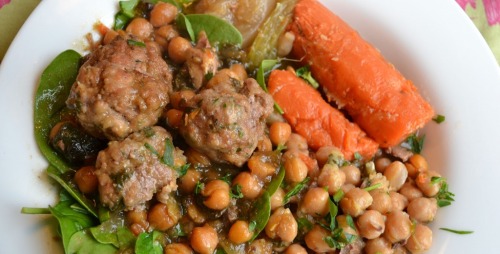
🇺🇸 Adafina is a classic Sephardic Sabbath stew similar to cholent among Ashkenazi Jews. It was prepared before sundown to comply with Sabbath laws, ensuring a ready meal the next day. This slow-cooked stew combines meats, vegetables, chickpeas, and eggs, transforming these ingredients into a delicately textured and flavorful dish. The recipe emphasizes using organic ingredients to enhance the taste, with the key ingredient being time, as the long cooking period perfects the flavors.
🇪🇸 La adafina es un guiso clásico sefardí para el sábado, similar al cholent entre los judíos asquenazíes. Se preparaba antes del atardecer para cumplir con las leyes del sábado, asegurando una comida lista para el día siguiente. Este guiso cocido a fuego lento combina carnes, vegetales, garbanzos y huevos, transformando estos ingredientes en un plato de textura delicada y sabor exquisito. La receta destaca el uso de ingredientes orgánicos para mejorar el sabor, siendo el tiempo el ingrediente clave, ya que el largo período de cocción perfecciona los sabores.
🇮🇱 La adafina es un guiso klasiko sefardí para el Shabat, parecido al cholent entre los djidyos ashkenazis. Se preparava antes del eskurezimiento para kumplir kon las layes del Shabat, assegurando una komida lista para el día sigyente. Este guiso kochido a fuego lento kombina karnes, verduras, garvanzos i wevos, transformando estos ingredyentes en un plato de textura delicada i sabor eskisito. La rezetika sujere uzar ingredyentes organyikos para mejorar el sabor, siendo el tiempo el ingredyente klave, pues el largo peryodo de kochura perfecciona los sabores.
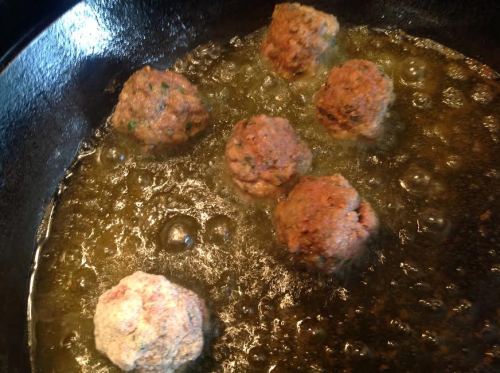

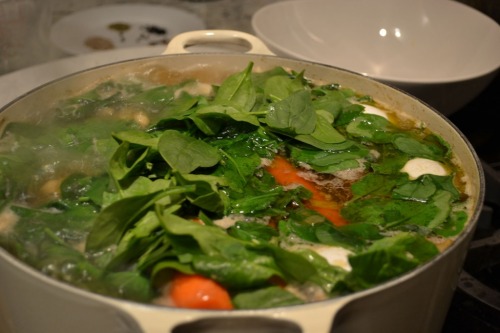
Almodrote: Spicy Eggplant
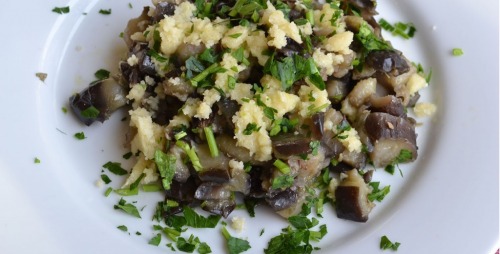
🇺🇸 Almodrote is a traditional Sephardic dish originally made from a mixture of raw garlic and shredded cured cheese, used as a sauce for eggplant. Modern recipes often use feta cheese mixed with gruyere, and may include eggs to thicken the sauce. The dish can be made by roasting the eggplant and baking it with the cheese mixture, resulting in a casserole-like dish.
🇪🇸 El almodrote es un plato tradicional sefardí hecho originalmente con una mezcla de ajo crudo y queso curado rallado, utilizado como salsa para la berenjena. Las recetas modernas suelen usar queso feta mezclado con gruyere, y pueden incluir huevos para espesar la salsa. El plato se puede hacer asando la berenjena y horneándola con la mezcla de queso, resultando en un plato similar a un gratinado.
🇮🇱 El almodrote es un plato tradicional sefardí hecho originalmente de una mezcolanza de ajo crudo i keso kurado rallado, uzado komo salsa para la berendjena. Las recetas modernas sovel uzar keso feta mezklao kon gruyere i pueden inkluir wevos para espeskar la salsa. El plato puede fazerse asando la berendjena i kueziéndola kon la mezcolanza de keso, resultando en un plato parecido a un gratinado.
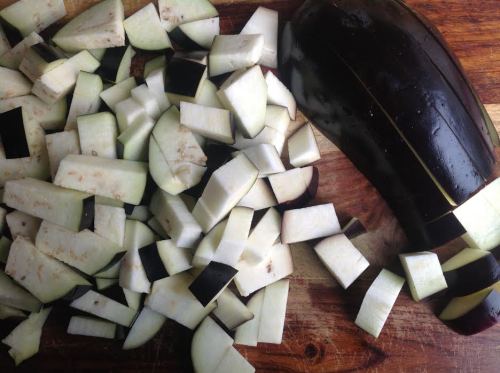
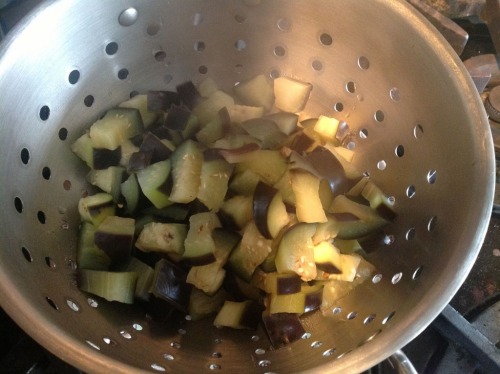
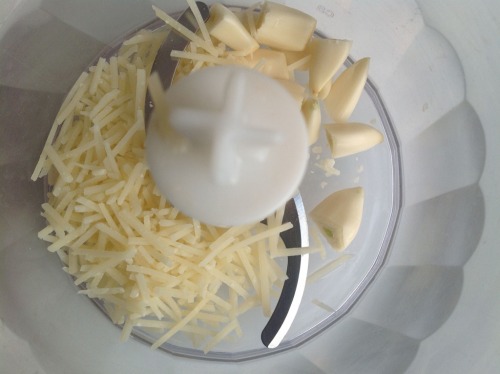
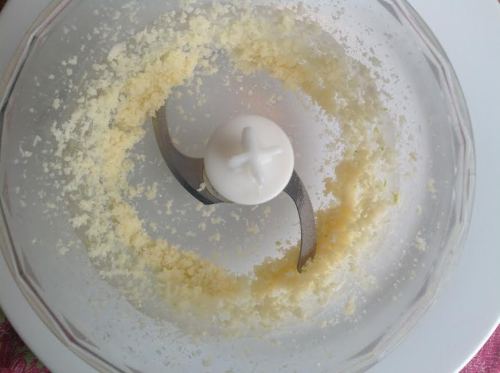

Sephardi Jewish woman, from Morocco, Natalie Ohayon Toby. Dress by Suzanne Benchimol, photography by Eric Benchimol.









